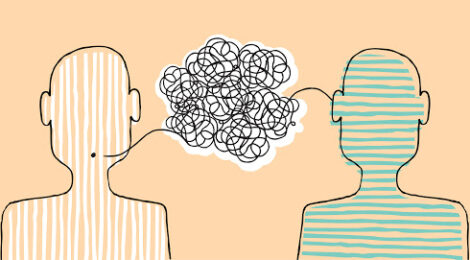
L’ANGOLO DELLA LINGUA
First of all, another ‘false friend’ ie a word that looks similar in the two languages but that has a different meaning.
The English verb to demand is translated as richiedere/esigere/pretendere (which require the subjunctive, eg il dittatore pretende che il popolo lo riverisca = the dictator expects people to revere him) whereas the Italian word domandare simply means to ask a question.
This prompts me to draw your attention to another trap: you cannot translate the English phrase to ask a question literally, ie you cannot say ‘domandare una domanda’; you have to say fare/porre una domanda. Here’s an example: You can now ask the speaker any question on the topic presented = ora potete fare/porre al relatore qualsiasi domanda sul tema trattato.
Then let’s look at the combination of the two particles ci and ne. When they are used together, they change to ce ne. Ex. Ci sono ancora fichi maturi sull’albero? Sì, ce ne sono ancora tanti/no, gli uccelli se li sono mangiati tutti quanti* = are there still some ripe figs on the tree? Yes, there are many left/no, the birds ate them all
C’è ancora torta? = is there any cake left? Sì ce n’è ancora una fetta/no, non ce n’è più = yes, there is still a slice left/no, there isn’t any left
I hope you’ve noticed that in a positive question/answer you use ancora for the word still whereas ancora would be wrong if the question/answer were in the negative. Look at this other example that further illustrates the difference: non c’è più torta? No, non ce n’è più perché l’ha finita Pierino = isn’t there any cake left? No, there is none left because Pierino finished it all.
- You can also say gli uccelli li hanno mangiati tutti quanti
Yvette Alberti
